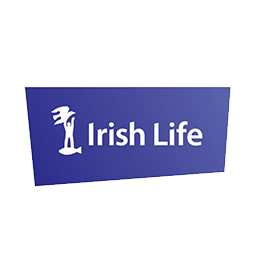December 2023
Tackling taboos about women's health
Women make up approximately 47% of the workforce in Ireland1, meaning around half of your employees are likely facing challenges and issues that are unique to them. To better understand the female perspective, Irish Life Health conducted a survey of 500+ women of various ages throughout Ireland. In a time when employee wellbeing and better mental health is reliant on honesty, transparency, and openness in the workplace, they wanted to know more about the challenges women faced on a daily basis around the topic of female health. Importantly, this information is also a great opportunity for employers to better understand and support their female employees with updates to policies and processes.
Here are the insights they uncovered...
Menstruation and periods
Findings
A quarter of women feel embarrassed when talking about their period or menstrual cycle, and the same number feel that information on the topic is lacking. This means that not only are many women struggling to access the right information about menstruation, but they are also potentially embarrassed to ask for help too. Being unable to speak openly about a natural biological process that occurs so frequently is potentially placing female workers under greater pressure and stress in the workplace.
Fertility
Findings
The overarching theme here is that communication on the topic is lacking greatly – despite the fact that almost half of women have had concerns about their fertility at some point in their lives. Without opportunities to engage in open dialogue with friends, family and colleagues, women can continue to struggle with feelings of sadness, guilt, and loss long after the traumatic event has taken place. Failing to address the ‘stigma’ around miscarriage may prevent women from seeking help on these issues, which is even more disheartening.
Menopause
- 1 in 3 women believe there is poor support for women in perimenopause and/or menopause2
- While 47% of 45–54 year olds say they felt their perimenopausal and/or menopausal symptoms had a negative impact on their job, only 36% felt adequately supported by their GP2
- 35% lack a deeper understanding of what perimenopause and menopause are, and what the symptoms or treatments are2
Findings
While 1 in 3 women want more information on the topic of perimenopausal & menopausal symptoms, the same number also say there is poor support – leaving their needs unmet2. What’s more, around half of women aged 45-54 say this transitional period negatively impacts their job, meaning there is potentially a large group of your employees that requires extra support.
Open discussions
- 25% of women don’t even feel comfortable talking about issues with their GP, partners or friends2
- Almost 50% of women in Ireland perceive issues such as miscarriage, infertility, eating disorders and menopause to be taboo topics2
- 81% agree they want to learn more about female health, and this is high across all age groups2
- Women aged 55-64 have the greatest hesitance when discussing issues with their partner2
- 59% of women say they get information about female health from social media or online2
- The biggest taboo topic (62%) across all ages is sexually transmitted diseases (STDs)2
Findings
The research Irish Life Health conducted appears to illustrate that while many women have worries, fears and concerns around female health, they don’t necessarily feel comfortable talking about some of, if any of these topics. In fact, they see that 25% of women don’t even feel comfortable talking to their GP, partners, or friends. More worryingly the survey indicated that almost 60% of women seek information online or from social media – which is not always the most reliable advice they could get. It would seem then that women in Ireland need expert guidance from sources they are comfortable using.
Your female employees need your support
As Irish Life Health’s research shows, women are facing a myriad of challenges and issues when it comes to female health on an almost on-going basis. With 52% of women having the sense that ‘we’re not there yet’ when it comes to female health supports in Ireland and only 1 in 10 claiming that their employer offers dedicated female health supports3, there is both an opportunity and responsibility for organizations to make this a priority.
Irish Life Health has been on a journey over the past few years to research and understand the needs of women in Ireland. This exploration has inspired and informed their new female health consultation benefit which is available on all hospital plans since September 1st, 2023.
This health insurance benefit enables your female employees to access GPs who are specialists in female health, who will explain factors to consider, the treatment options available, and most importantly, where to get these treatments. They can even refer female employees for follow up in-person care if required, and guide them to other supports that often form part of the ideal treatment - such as nutrition, physiotherapy, and mental health.
Medical plans in Ireland in IGP?
Irish Life Health dac is a subsidiary of the Irish Life Group Ltd, and a provider of competitive and comprehensive health insurance plans.
It is important to note that Ireland’s health insurance market is community-rated. The cost of health insurance premiums is not based on an individual health status but on the average cost of providing private health services. Everyone, with certain exceptions, can purchase the same policy for the same price. A risk equalization mechanism operates in the background to compensate insurers with older or sicker portfolios. For this reason, Irish Life Health insurance plans cannot be included in multinational pooling, global underwriting or reinsurance to captive programs.
Why partner with Irish Life?
Learn more about the advantages of partnering with Irish Life, view their key figures, recent awards and recognitions and get in touch with the local IGP contact.
Learn more